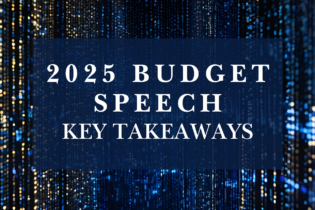Groundwater has always been an integral part of water supply in South Africa and ancient civilisations. However, because of its hidden nature and the skill required to find, exploit and manage it, this resource is often overlooked as a reliable water source, says Water Research Commission’s (WRC) research manager, Dr Shafick Adams.
“The latest National Water Resource Strategy (NWRS) now incorporates groundwater in a meaningful way enabled by the National Groundwater Strategy of 2010,” says Adams, adding that groundwater, if managed correctly, has the potential to significantly add to the country’s water supply mix. “However, groundwater unfortunately does not get the attention it deserves at the implementation level. We have very good local policies, regulations, strategies, tools, guidelines, information, etc. However, efficient management of groundwater relies on the effectiveness of applicable legislation and institutional arrangements as well as good understanding of the behaviour of the aquifer or well-field being managed,” continues Adams. He contends that there is a lack of skilled technicians and other operation and management specialists, particularly in small towns and remote areas where many groundwater schemes are found. “From a groundwater governance point of view, municipalities lack the human resource capacity to effectively implement groundwater governance provisions.” He adds that it should also be noted that often there is no funding explicitly allocated to groundwater management in the municipal budget. A numbers game “The scale of investment required in new water infrastructure over the next decade has been estimated at R668 billion,” states Adams. “This investment estimate relies mainly on surface water developments. Greater use of groundwater might mitigate these costs, and reduce the financial, environmental and social costs to the country.” According to Adams,in South Africa, about 98% of groundwater is found in fractured, hard rock aquifer systems. Primary aquifers are restricted to coastal sand deposits along the west and south coast of the Cape and along the KwaZulu-Natal coast. Secondary aquifers (i.e. hard rock aquifers), whose hydrogeological properties are enhanced by weathering, fracturing and faulting of hard rock are the most dominant, with major aquifers being associated with dolomitic rocks, quartzite and sandstone of the Table Mountain Group and sandstone and shale of the Karoo Sequence. The total volume of available renewable groundwater is therefore estimated to be between 10 343 million cubic metres per annum (7 500 million cubic metres per annum under drought conditions). “Current use is estimated between 2 000 and 4 000 million cubic metres per annum,” says Adams. A challenging context There are, however, challenges faced in accessing this resource. As Adams indicates, a recent World Bank funded study found that the technical, legal and institutional and operational governance provisions are reasonable, but weak for cross-sector policy coordination. Institutional capacity is weak across all thematic areas except for the technical provisions. “At the local level, the picture is not getting better. Overutilisation and poor management of the groundwater resources and related infrastructure are often due to poor or non-existent management plans and governance provisions,” states Adams. He, however, believes these challenges can be overcome – albeit not easily. In this case, Adams refers to Jude Cobbing, who noted in his paper at the recent Groundwater Division conference that: “Of all of the issues, it appears that operation and maintenance (O&M) is the key to groundwater scheme sustainability. While hydrogeological issues such as recharge, transmissivity and groundwater quality are important (and influence O&M), it is O&M that ‘makes or breaks’ a groundwater supply”. However, several municipalities seem to be getting it right mainly due to the phenomenon of bureaucratic entrepreneurs or groundwater champions, continues Adams. “It is clear that groundwater needs to be taken more seriously as a large number of towns and people rely on this precious resource. The almost non-existent capacities within local authorities need serious attention at all levels. Groundwater is a viable water supply option if managed correctly, including being supported by proper governance provisions.”Increasing public awareness
Adams notes an increasing public awareness of groundwater due to the public debates of the potential impact of unconventional gas development and the efforts of the WRC and the groundwater division of the Geological Society of South Africa. “While unconventional gas development is an important issue, we cannot neglect the fact that groundwater is not been properly managed at the local level. Operation and maintenance issues are depriving communities of accessible water and the economy of significant growth,” says Adams. He adds that groundwater is currently underutilised or poorly managed in several areas. It has the potential to augment future water supply needs in a meaningful way through conjunctive use. It is also a very good buffer during drought periods. It is thus imperative to protect and conserve this valuable resource and to manage it sustainably. Continuing investment As such, he believes given the extensive research the WRC has put into the subject, there are several groundbreaking projects that are noteworthy, “and we have a suite of projects that aims to unlock our groundwater reserves and to manage it in a sustainable manner”.They range from favourable zone identification for groundwater development, focusing on options analysis for local municipalities, groundwater management functions, identifying and quantifying groundwater development options, groundwater valuations and groundwater governance. Adams references a recent article in the WRC’s Water Wheel, when he adds that: “Since the first WRC groundwater-related research project was initiated in 1974, funding for groundwater projects has varied between 6 and 16% of the commission’s annual research spending. A study investigating this research impact a few years ago found this investment to be the most significant contribution to the building of capacity for the sustainable utilisation and management of groundwater resources in South Africa.” In addition, he notes that the same article indicated that the WRC invested more than R5 million in groundwater projects last year, with another R2.8 million planned spending this financial year. “The current areas of focus include groundwater-surface interactions and improving understanding of South Africa’s vast fractured rock aquifers in terms of hydraulic behaviour and chemical characteristics. Another focus is around building and understanding and developing the necessary tools for groundwater management at the local (i.e. municipal) level.” Changing our focus According to Adams, science should provide us with the foundation for credible decision-making. “Only through adequate knowledge about the behaviour, occurrence, interaction with other reservoirs and risks as well as through finding innovative solutions can we develop and manage our groundwater resources efficiently, sustainably and equitably. However, science alone does not necessarily drive policy and regulatory decisions, but is usually considered with other relevant factors.” As such, he contends that South Africa’s focus by large needs to be on implementation of the available tools, frameworks, policies, guidelines and best practices, as well as proper financing of groundwater schemes that include long-term operation and maintenance costs and improvinggovernance provisions at all levels. “We have all the technical experts in the country that can solve all our technical issues. It is the softer inter- and intra-institutional cooperation and management issues that are our Achilles heel,” states Adams. Additionally, he points out that the DWA Groundwater Strategy (2010) identified the following priority actions to enhance the implementation of the National Water Act (NWA):- Policy, legislation and regulation
- Water resources planning
- Human capacity
- Sustainable groundwater management
- Institutional capacity
- Information management
- Research
- Communication and awareness.







